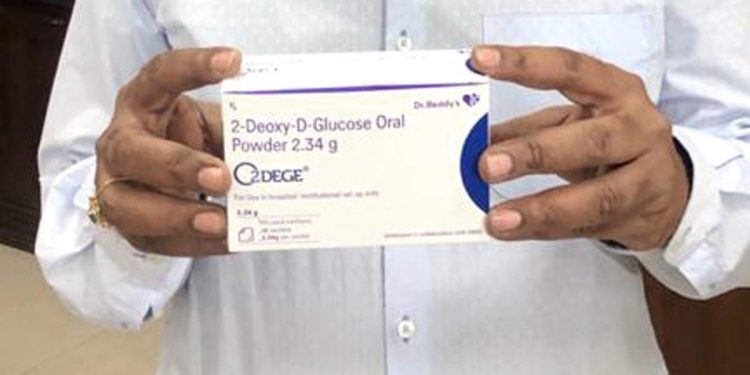New Delhi: The Defence Research and Development Organisation DRDO issued directions Tuesday on the usage of its 2-DG drug on Covid-19 patients. The DRDO said that caution should be exercised while prescribing this medicine to people who have comorbidities. It said the drug should be used with caution for people with comorbidities like uncontrolled diabetes, severe cardiac problem and acute respiratory distress syndrome.
The Drugs Controller General of India (DCGI) approved the 2-deoxy-D-glucose (2-DG) drug for emergency use as an adjunct therapy in moderate to severe coronavirus patients in early May.
The first batch of this oral drug was released May 17 by Defence Minister Rajnath Singh and Health Minister Harsh Vardhan. The DRDO on Twitter issued ‘directions for usage of this drug for Covid-19 patients as per DCGI approval’.
“Ideally, 2DG should be prescribed as early as possible by doctors for moderate to severe Covid-19 patients for maximum duration up to 10 days,” the DRDO said.
“Uncontrolled diabetes, severe cardiac problem, acute respiratory distress syndrome, severe hepatic and renal impairment patients have not been studied yet with 2DG. Hence caution should be exercised in its use,” the DRDO noted. “2DG should not be given to pregnant and lactating women and patients below 18 years,” it further said.
Patients or their attendants are advised to request their hospital to contact Dr Reddy’s Laboratories (DRL) for medicine supply.
Also read: Odisha places orders for 5,000 sachets of DRDO developed anti-Covid drug 2DG
The anti-Covid therapeutic application of 2-DG drug has been developed by the Institute of Nuclear Medicine and Allied Sciences (INMAS), a leading laboratory of DRDO, in collaboration with DRL.
The defence ministry said May 8 that the clinical trials of 2-DG showed that it helps in faster recovery of hospitalised patients. The drug also reduces supplemental oxygen dependence.
The approval of the drug has come at a time India has been grappling with a record-breaking wave of coronavirus pandemic that has stretched the country’s healthcare infrastructure to its limit. The drug comes in powder form in sachet and is taken orally by dissolving it in water.






































